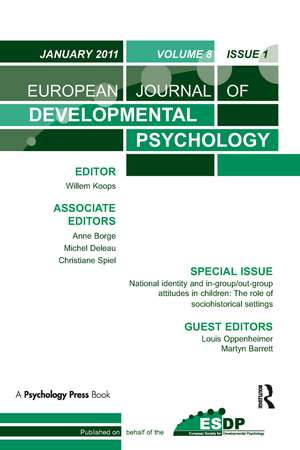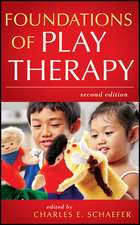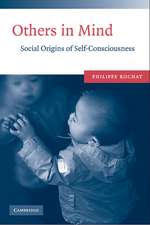National Identity and Ingroup-Outgroup Attitudes in Children: The Role of Socio-Historical Settings: A Special Issue of the European Journal of Developmental Psychology: Special Issues of the European Journal of Developmental Psychology
Editat de Louis Oppenheimer, Martyn Barretten Limba Engleză Paperback – feb 2011
The studies examined whether differences in the structure and content of national identity and attitudes result not only from processes of knowledge acquisition but also from cohort and context effects. Developmental and gender differences within each national group, and differences between national groups, are explored in terms of the cultural heritage of the particular group to which the children belong and the patterns of historical and contemporary relationships that exist between their own group and the various outgroups towards which their attitudes were assessed.
Findings show that the development of national identifications and national attitudes exhibit considerable cross-national variation as a function of the specific socio-historical contexts within which children develop. These studies, considered together, indicate the need for developmental theorising in this area to avoid simplistic conclusions based upon data collected within just one specific location. The adoption of a broader cross-national comparative perspective is required when attempting to address questions concerning how children’s national identifications and attitudes develop within real-world settings.
| Toate formatele și edițiile | Preț | Express |
|---|---|---|
| Paperback (1) | 312.50 lei 6-8 săpt. | |
| Taylor & Francis – feb 2011 | 312.50 lei 6-8 săpt. | |
| Hardback (1) | 496.94 lei 6-8 săpt. | |
| Taylor & Francis – 21 noi 2018 | 496.94 lei 6-8 săpt. |
Preț: 312.50 lei
Nou
Puncte Express: 469
Preț estimativ în valută:
59.80€ • 64.94$ • 50.24£
59.80€ • 64.94$ • 50.24£
Carte tipărită la comandă
Livrare economică 22 aprilie-06 mai
Preluare comenzi: 021 569.72.76
Specificații
ISBN-13: 9781848727427
ISBN-10: 1848727429
Pagini: 134
Dimensiuni: 156 x 234 x 7 mm
Greutate: 0.2 kg
Ediția:1
Editura: Taylor & Francis
Colecția Psychology Press
Seria Special Issues of the European Journal of Developmental Psychology
Locul publicării:Oxford, United Kingdom
ISBN-10: 1848727429
Pagini: 134
Dimensiuni: 156 x 234 x 7 mm
Greutate: 0.2 kg
Ediția:1
Editura: Taylor & Francis
Colecția Psychology Press
Seria Special Issues of the European Journal of Developmental Psychology
Locul publicării:Oxford, United Kingdom
Cuprins
L. Oppenheimer, M. Barrett, Introduction to the Special Issue. M. Barrett, L. Oppenheimer, Findings, Theories and Methods in the Study of Children's National Identifications and National Attitudes. D. Clay, M. Barrett, National Identifications and Attitudes Towards a 'Traditional Enemy' Nation Among English Children. L. Oppenheimer, E. Midzic, National Identification and Ingroup-Outgroup Evaluations with Bosniak and Serbian Children. E. Gallagher, E. Cairns, National Identity and Ingroup-Outgroup Attitudes: Catholic and Protestant Children in Northern Ireland. B. Mertan, Children's Perception of National Identity and Ingroup-Outgroup Evaluations: Turkish-Cypriot School Children. P. Stavrinides, S. Georgiou, National Identity and Ingroup-Outgroup Evaluations with Greek-Cypriot Children. L. Reizabal, G. Ortiz, National Identity and Ingroup-Outgroup Attitudes with Basque and Basque-Spanish Children Growing Up in The Basque Country. L. Oppenheimer, Comparative Analyses: Are There Discernable Patterns in the Development of and Relationships Among National Identification and Ingroup-Outgroup Evaluations?
Descriere
This special issue addresses whether differences in national identifications and national attitudes in children from different national groups result not only from processes of knowledge acquisition but also from cohort and context effects. Collectively, the studies examined 7- and 11-year-old children living in 12 different national settings that have or have not experienced violence or war in the recent past. Findings show that theories predicting universal developmental courses for national identifications and attitudes cannot be maintained across different socio-historical and political settings, and that much greater attention needs to be paid to the specificities of the particular contexts in which children develop.












